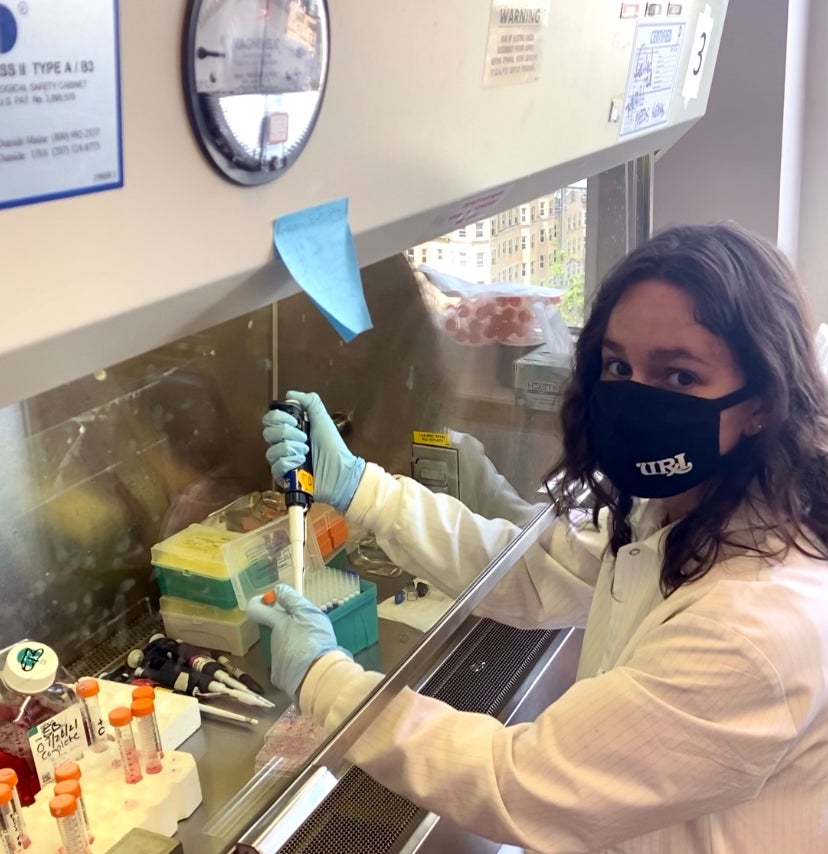- DAI Student, SADA/A President
- Read Jewel's account of navigating college as a student with an invisible disability and how she has integrated disability into her research.
Biography
Having an invisible illness can be like an optical illusion: others may not see you how you see yourself and the perspectives can be different depending on what you’re looking at. The way in which I perceive my situation has changed tremendously throughout the years. I questioned my own abilities multiple times, underestimating what I could achieve. My first year of undergrad, I struggled with being able to attend classes and was unsure if I would truly be able to finish getting my degree. But as I enter my last year at the University of Rhode Island, I look back at my personal optical illusion and can see things differently now. My previous struggles ultimately pushed me to achieve goals I never thought I would have been able to reach; one being my summer research experience at Harvard Medical School. I was able to spend this past summer in an infectious disease lab working towards new techniques and skills that I would carry on in my future research career. Through these 10 weeks, I studied a potential treatment for cancers caused by Epstein-Barr Virus. I was ultimately able to present my first oral presentation at an undergraduate national symposium due to this opportunity and able to grow my scientific communication skills as well.
Starting from my diagnosis with an autoimmune disease, I became interested in understanding the body’s responses to stressors that it is put under. From this interest, I joined research labs at the University of Rhode Island and was also accepted into the MARC U* Star program: a two year NIH funded program for underrepresented undergraduate students who aim to attend graduate school. While I participated in these research projects and continued my studies, I found it important during every step to reach out for support to ensure that I am accommodated through my academics. Honestly, this is one of the strongest reasons that I have been able to stick towards my goals. I still battle everyday with problems that not every other individual may understand, but I find it important to share my story for students who may also fight similar battles to me. I try to share my story to explain that it is okay to reach out for help and that having accommodations can be important in pursuing your goals. There are strong stigmas against students with disabilities and the need to fight them are stronger. I hope that incoming students take away that it is okay to seek accommodations when they feel they need them. It is important to not hold yourself back and underestimate what you can achieve.

